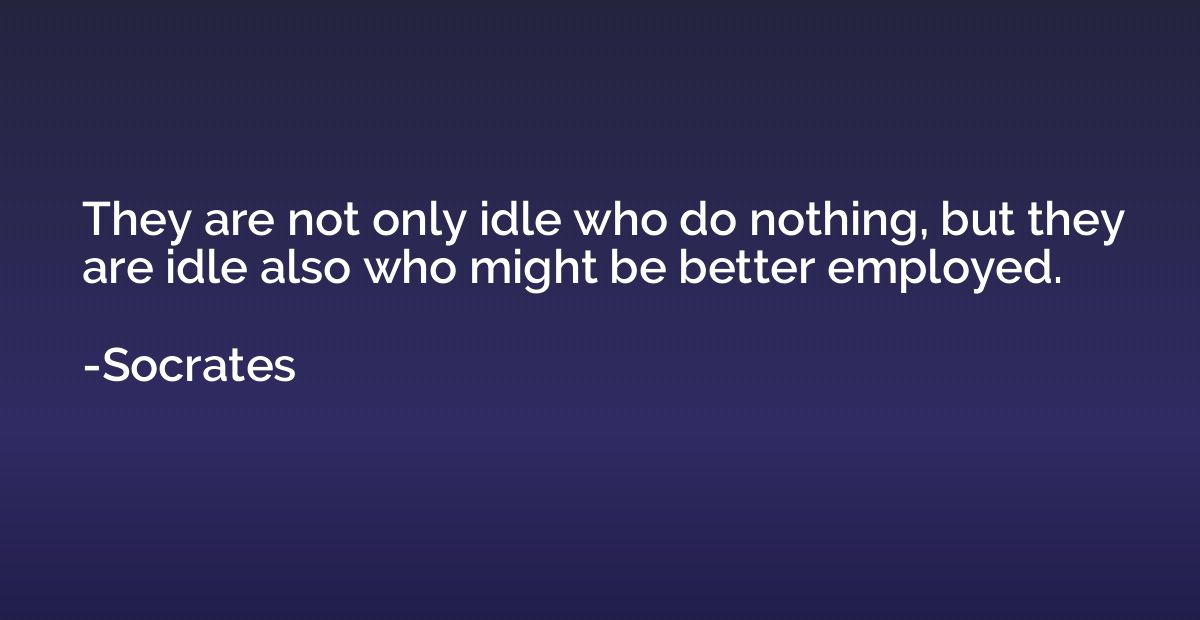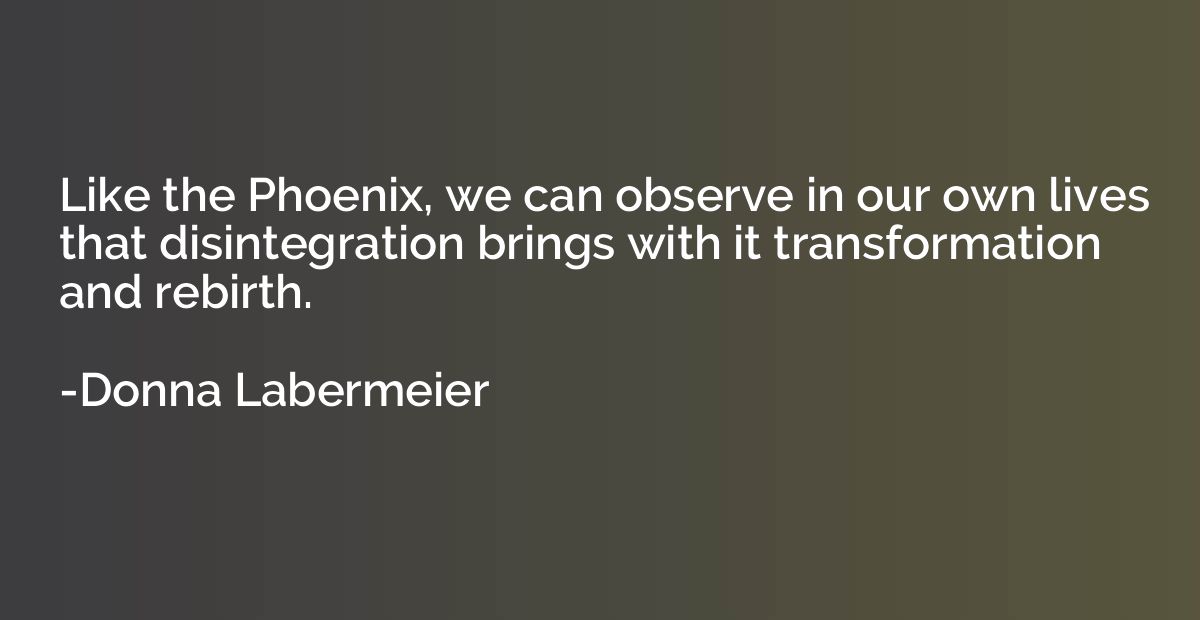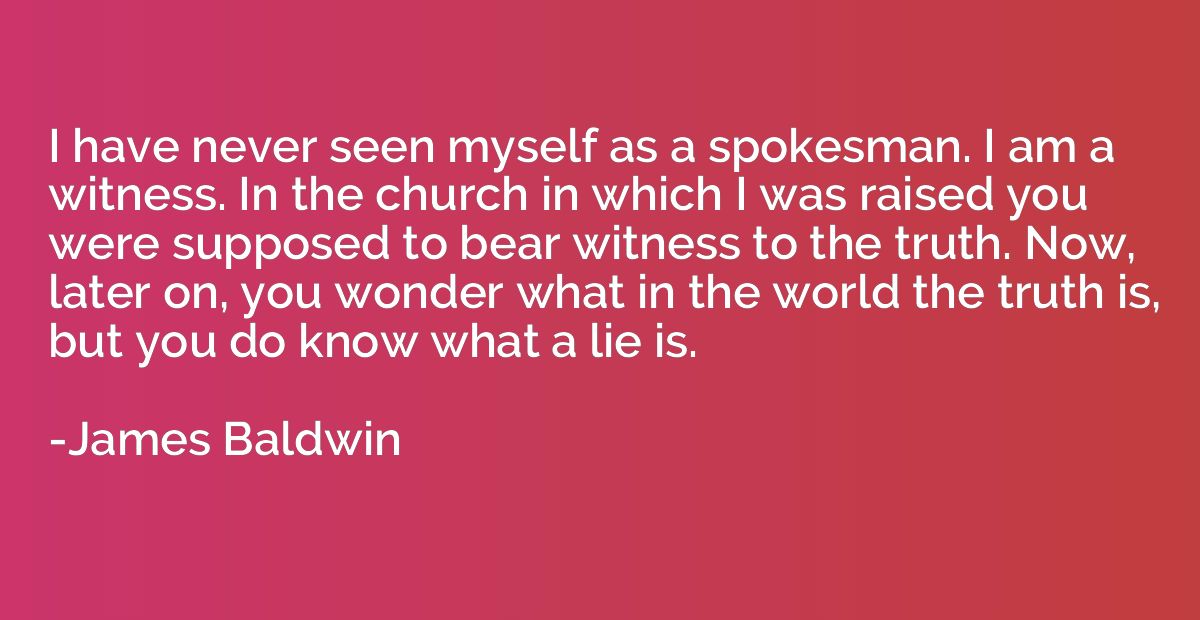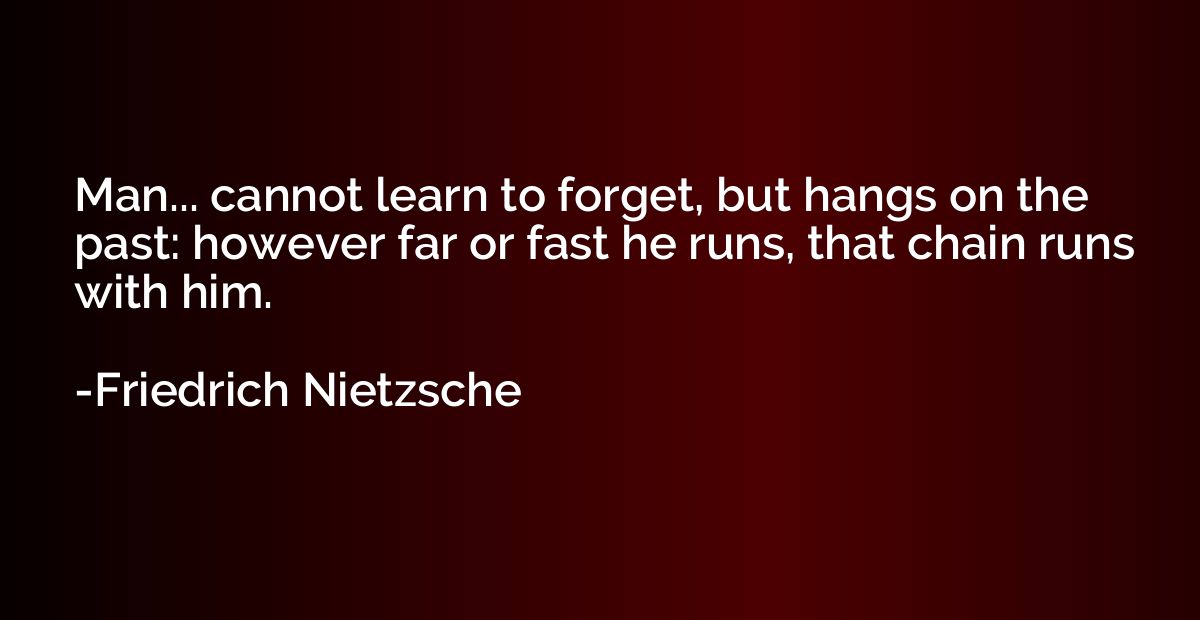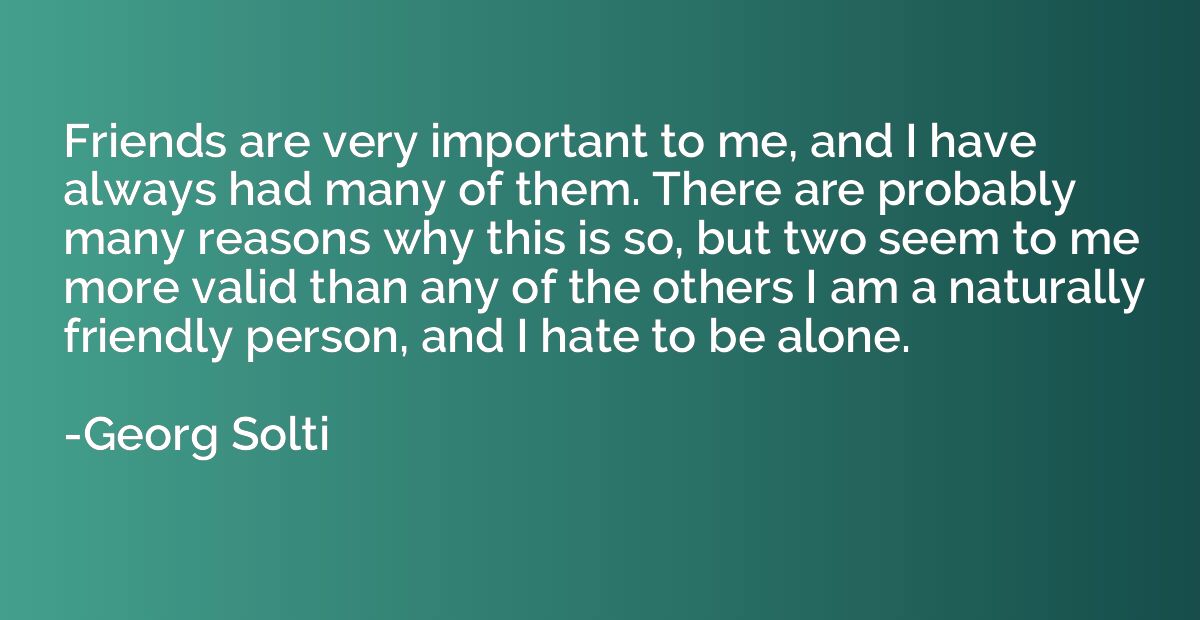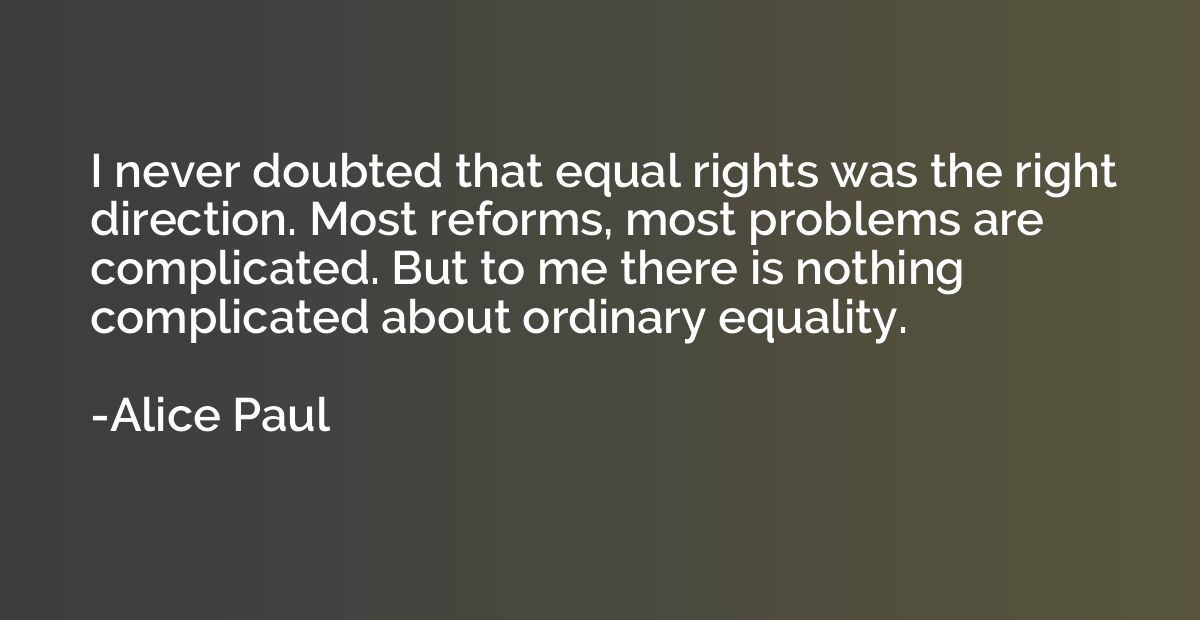Quote by George Bernard Shaw
Do not mistake your objection to defeat for an objection to fighting, your objection to being a slave for an objection to slavery, your objection to not being as rich as your neighbor for an objection to poverty. The cowardly, the insubordinate, and the envious share your objections.
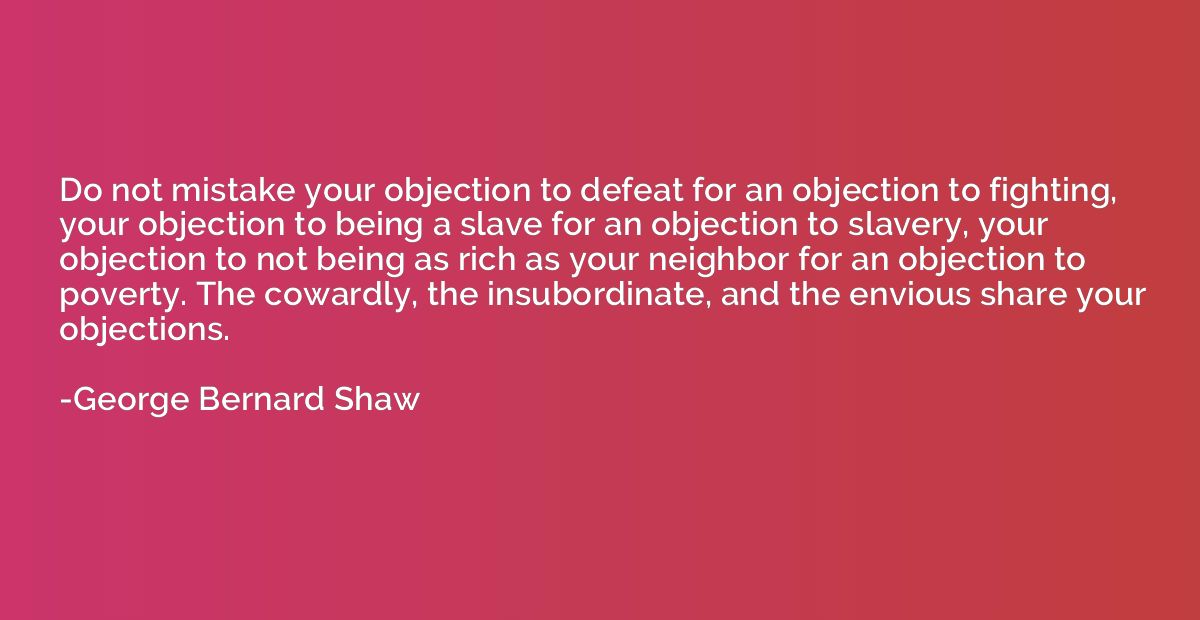
Summary
This quote reminds us not to confuse our objections to negative circumstances with objections to the opportunities and efforts required to change them. It highlights the importance of distinguishing between our rejection of defeat or slavery, and the resentment of not having what others possess. While the cowardly, insubordinate, and envious may share similar objections, it is essential to channel our objection into constructive action rather than disdain towards others. It encourages us to fight for a better life, freedom, and equality without harboring envy or resentment towards others.



